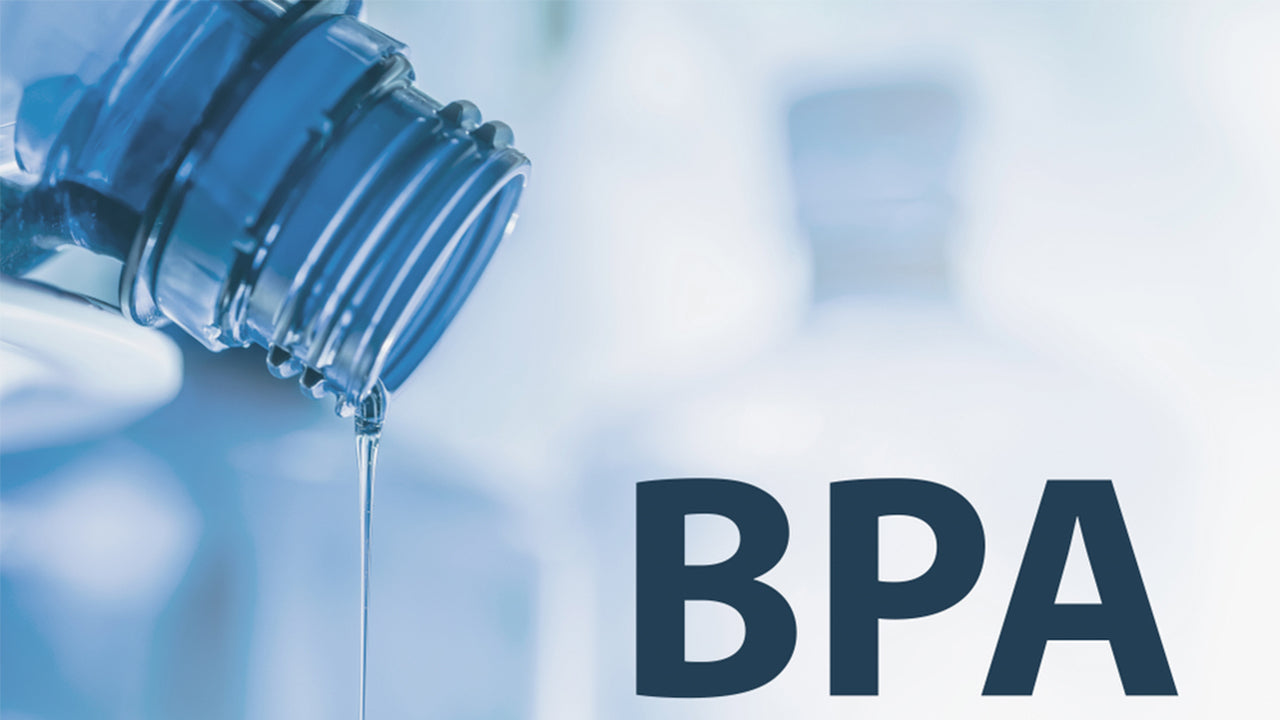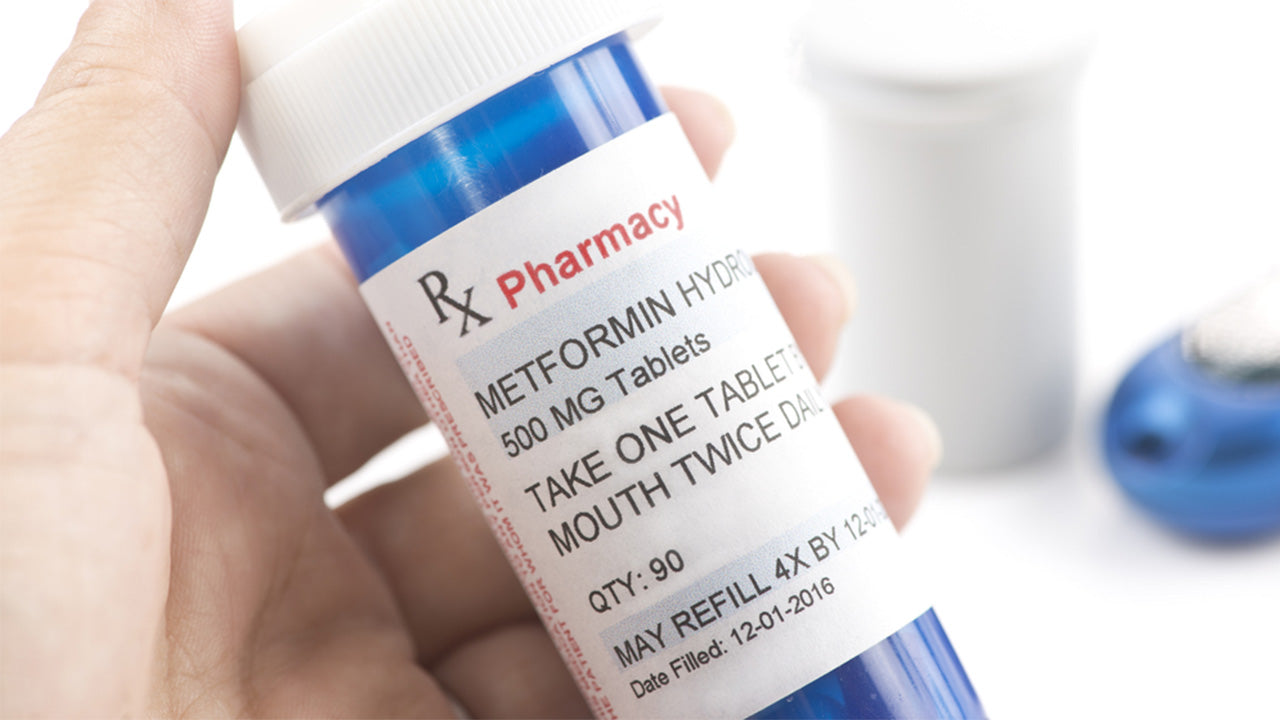What Is BPA and Why Is It Bad for You?
 By: by Amino Science
By: by Amino Science

You may have noticed more and more items at your local store proudly flaunting a BPA-free sticker, but has it left you wondering what this menacing abbreviation means? What is BPA and why is it bad for you? We’ll take a closer look at what all the buzz is about and see if you should really avoid BPA at all costs.
What Is BPA?
Bisphenol-A, or BPA, is a chemical added in the manufacturing of plastic to make it harder, stronger, and more resistant. Discovered in the late 1800s, BPA was later used to form epoxy resins and strong polycarbonate plastics beginning in the 1950s to create food containers and personal care products.
Polycarbonate plastics are frequently used to store the food and drinks we find at the grocery store, as well as to create baby and water bottles. Epoxy resins are poured into metal bottle tops and food cans to prevent corrosion.
Products Containing BPA
The primary means of exposure to BPA for most of us is through our diets. While air, dust, and water are other possible sources of exposure, BPA in food and beverages accounts for the majority of our daily exposure. We can ingest BPA by eating foods from metal cans that are lined with epoxy resin or by using a number of products, including plastic food containers, water and baby bottles, and plastic utensils. If any of these products are put in the microwave and the contents are heated to a high temperature, BPA can leach into the food as well.
BPA can also be found in certain medical devices, dental sealants, feminine hygiene products, electronics, and even eyeglass lenses.

Some manufacturers have replaced BPA with BPS (bisphenol-S) or BPF (bisphenol-F). However, recent reports have shown that BPS can be just as harmful to your body as BPA.
Is BPA Harmful?
The question arises, “Is BPA bad for you?”
One reason you may be worried is your risk of being exposed to BPA at some point is relatively high. The 2003-2004 National Health and Nutrition Examination Survey conducted by the Centers for Disease Control and Prevention (CDC) found traceable amounts of BPA in 93% of people over 6 years old in the United States. Developmental effects in a growing fetus have also been detected in lab animals when exposed to small amounts of BPA. This raises concern that pregnant women could possibly pass these chemicals onto their growing child.
BPA Health Effects
As BPA exposure extends over years and decades, the negative effects on health continue to rise. Cancer, heart disease, and other serious health issues have been linked to chronic BPA exposure. Many scientists are concerned, as BPA is an endocrine disruptor that can harm the brain and prostate gland and alter behavior, especially in more susceptible individuals like young children.
Very similar to the structure of the hormone estrogen, BPA can potentially join with estrogen receptors, which can affect several functions, including fetal development, cell repair, fertility, energy levels, and overall growth. A study published in Human Reproduction, the flagship journal of the European Society of Human Reproduction and Embryology, revealed that women who'd had recurrent miscarriages had higher levels of BPA (nearly 3 times as much) as women who'd successfully carried to term. Other studies link greater levels of BPA with decreased egg production, while women with low levels of BPA are twice as likely to become pregnant.
Your body is sensitive to changes in hormone levels, making BPA’s effect on estrogen receptors extremely concerning. China, Canada, Malaysia, and the European Union have all restricted the use of BPA in consumer products, especially in the manufacture of baby and child products. No federal regulations have been put in place in the United States, but some regulations exist at the state level.
A connection between increased blood pressure and BPA exposure has also been identified in recent research. It was noted that, after being exposed to BPA, individuals had a 5-point increase in their blood pressure. For someone who suffers from blood pressure issues, this is a substantial change. BPA may be responsible for binding to receptors that affect blood pressure, similar to its behavior with estrogen receptors, and altering the body’s systems and cell communication. BPA may affect blood pressure indirectly by influencing other organ functions and receptors that are in charge of releasing certain hormones.
The U.S. Food and Drug Administration (FDA) says our exposure to BPA through food and drink products is very minimal, but research is ongoing. The NIEHS and National Toxicology Program performs research on the effects of BPA, and their findings help determine decisions on the topic.
How to Reduce BPA Exposure
While it’s very challenging to avoid all harmful chemicals, including BPA, there are steps you can take to lower the amount and frequency of your exposure, such as cutting back on the use of plastic products and investing in BPA-free products instead. If you are worried about BPA, here are a few tips to help you cut back your contact:
- Look for the BPA-free label. When buying certain products like water, baby bottles, or sippy cups, look for items labeled BPA-free and steer clear of plastic bottles unless it's BPA-free plastic.
- Reduce the use of cans and canned foods. Since many cans for soda and food storage are lined with epoxy resin, it’s best to avoid these items as much as possible.
- Avoid heat. Don’t microwave polycarbonate plastic food containers. While strong and durable, they can disintegrate when repeatedly heated to high temperatures.
- Check the code. Look at the recycle codes at the bottom of plastic containers. Some plastics that are marked with codes 3 or 7 may be made with BPA.
- Find alternatives. When possible, choose stainless steel, porcelain, and glass, especially when consuming or heating hot foods or liquids.
As for Amino Co products, you can rest assure all our packaging is BPA free!

Up to 25% off Amino
Shop NowTAGS: food
Join the Community
Comments (0)
Most Craveable Recipes




 833-264-6620
833-264-6620



















